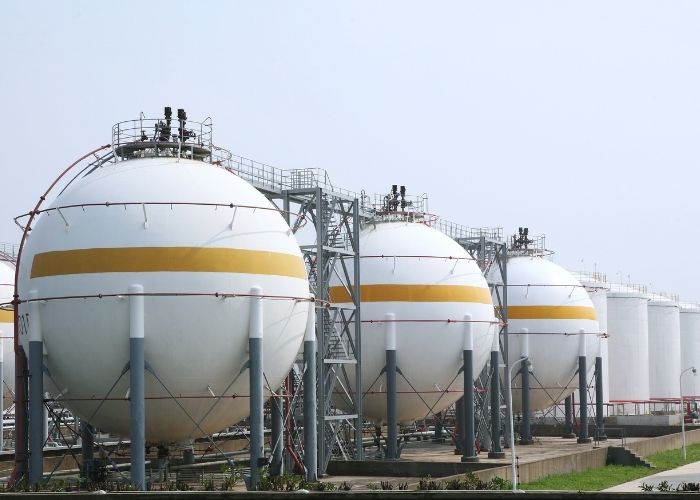MADRID – The EU has confirmed that Spain and Portugal will receive ‘special treatment’, allowing them to temporarily request a cap on gas prices as an exception.
However, the Spanish government cannot make the cut immediately because the European Commission must give the final green light. This is not expected until next week. ‘We have agreed on a special treatment that is possible for the Iberian Peninsula so that it can deal with this very specific situation it is in and manage electricity prices,’ European Commission President Ursula von der Leyen said at the end of the meeting.
Shortly after, Pedro Sánchez called this agreement ‘very important’. ‘Finally the unique situation of the Iberian Peninsula is recognised in the EU’s energy policy’. This is the argument he used since last Wednesday to convince the EU-27 to allow Spain and Portugal to set a temporary gas price cap. Sánchez led the fight together with Portuguese Prime Minister Antonio Costa.
Role for the European Commission
The measure will not be in force ‘today’, however, as the agreement stipulates that the Spanish and Portuguese governments must first submit to the Commission the measures they intend to take to reduce the gas price through a price cap. This is to enable the EU to confirm it ‘is in line with European law’. Although Brussels has pledged to examine this request urgently, the final green light will not be given until next week.
Funding
Government sources suggested a few days ago that this could be done through the budget, the tariff deficit, or through the contribution of consumers participating in the system. On Friday, Sánchez indicated that these compensations will be ‘no support to the gas companies’.
Ten hours of intensive discussions
The special conditions recognised for Spain and Portugal are part of an agreement in the European Council. This agreement managed to bring countries with very opposing views together after more than ten hours of ‘intensive discussions’. Spain and Portugal and an alliance formed by France, Italy, Greece, Belgium, Romania, Bulgaria, and Slovenia are in favour of price reduction. However, the Netherlands, and Germany have always been against price controls because they believe it could distort the energy market. Sánchez countered that ‘ these are exceptional, temporary measures that do not involve gas subsidies and do not distort the market.’
Reduce dependence on Russia.
In addition, the EU-27 countries have agreed to create natural gas reserves to fill their storage facilities. This will be up to 80% by next winter and 90% in the coming years. And furthermore, to study joint purchasing of gas between the member states. This was another idea that Sánchez came up with. European countries are aware of the need to reduce their dependence on Russian gas. Especially since buying gas from Moscow contributes significantly to financing the war in Ukraine.
Compliment for Sánchez
At the end of the European Council, the German Chancellor, Olaf Scholz, said that ‘Pedro Sánchez has represented the interests of his country very successfully’. Together with his Portuguese colleague, he has ensured the governments of Portugal and Spain have opportunities to act,’ he said.
Content of Sánchez proposal
The proposal made by Spain on Thursday is about limiting gas prices. This would be done by compensating electricity companies that produce gas with national funds in combined cycle power plants. Until then, the Spanish government did not talk about the maximum price of €180 MW/h that it had just agreed with Portugal a week earlier. However, on his arrival at the EU summit, Sánchez did bring this up again. He urged that it should at least be possible for Spain and Portugal, given the energy disadvantage of these two countries compared to the rest of Europe.
Tough battle on Friday
Instead of caps on gas prices, the EU executive proposed that member states could subsidise their citizens’ gas consumption. This proposal was rejected by Spain, due to doubts about its compatibility with EU state aid rules and the belief that it would in any case encourage the consumption of fossil fuels. Moreover, this runs counter to the goals of reducing consumption and increasing the use of renewable energy sources. With the latter proposal on the table, the meeting became increasingly tense. Furthermore, Italian Prime Minister Mario Draghi threatened to veto the adoption of all the summit’s decisions. He included those on EU aid to Ukraine, if the EU27 did not agree to a cap on gas prices.
Sánchez did not want to go that far because of the “rift” that this would cause in the EU, in the middle of the fight with Vladimir Putin over the war against Ukraine. But he insisted that something had to be done and that the summit should produce a measure that would bring “significant relief” to energy prices. He did, however, angrily leave the plenary early in the afternoon. ‘I’m going to get some air and clear my head. Let me know if you have anything new to say,’ he told the rest of the EU leaders. His absence was short-lived. On his return, Council President Charles Michel ordered a recess to allow all delegations and their teams to reorganise their strategies and proposals. After the break, the text was finally approved by the European Council. This will allow Spain and Portugal to exceptionally cap the price of gas.


